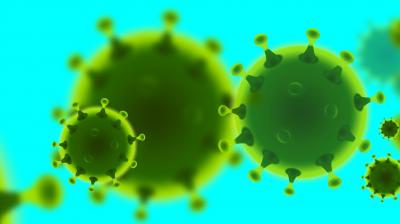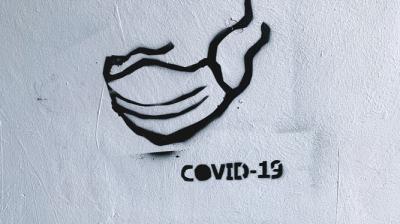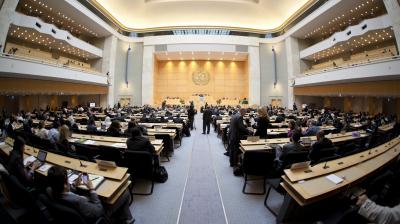Corona underpins the importance of global health arrangements
This op-ed was based on a previous opinion piece published in het Financieele Dagblad on 27 March, 2020.
‘If anything kills over 10 million people in the next few decades, it’s most likely to be a highly infectious virus rather than a war. Not missiles, but microbes.’ Those were the words with which Bill Gates began his TED Talk entitled ‘The next outbreak’ in 2015. The coronavirus outbreak is forcing the international community, including the Netherlands, to face the fact that infectious diseases do not stay within national boundaries. This also means that an international approach and a shared European vision are crucial.
"Together with European partners we must invest more in other countries' healthcare and in strengthening the WHO."
The Netherlands is dependent on the way in which other countries deal with their healthcare and combat infectious diseases and these diseases do not stop at national borders. The Netherlands needs to advocate for better agreements on early recognition and prompt notification of new diseases to prevent new pandemics. Together with European partners we must invest more in other countries' healthcare and in strengthening the World Health Organization (WHO). Only then can we put in place a better response to new diseases in order to prevent new pandemics.
In 2010, the RIVM (the Netherlands National Institute for Public Health and the Environment) stated in a report that ‘when it comes to combating and preventing infectious diseases, the Netherlands, as a small country, is especially dependent on events in other countries and those countries’ arrangements for combating infectious diseases’. The Institute concluded: ‘Since infectious diseases have the potential to strike globally, reducing infectious diseases elsewhere is important for the situation in the Netherlands.’ Infectious diseases spread in particular because they hit hardest when a health system is deficient.
When is a country well equipped to combat infectious diseases? When it has sufficient capacity, such as well-trained medical personnel, and sufficient medical products, such as face masks, but also a high level of vaccination against well-known infectious diseases, transparent information on public health, proper administration and a stable funding base. The fact that countries with weak healthcare systems pose a risk to international public health is nothing new. The 2014 Ebola outbreak in West Africa showed that infectious diseases spread very quickly. The same was true during the Zika, SARS and MERS outbreaks.
Independent evaluation of WHO and Dutch policy
Following the Ebola outbreak the Policy and Operations Evaluation Department (IOB) of the Netherlands Ministry of Foreign Affairs published a highly critical report in 2016 entitled ‘Voorkomen is beter dan genezen’ (‘Prevention is better than cure’). This showed that the Ministry of Health, Welfare and Sport considered that ‘the WHO’s work in the field of public health is less relevant to the Netherlands itself, in view of the relatively well-off state of Dutch healthcare’. The Department also concluded that before the global Ebola emergency was declared, scant attention, if any, had been devoted to the problems faced by the WHO in fulfilling its mandate in terms of preparedness and rapid response in the event of a health crisis. It did not acknowledge that the WHO was known to be a weak international organisation with a cumbersome regional structure and insufficient funding to fulfill its mandate.
"The scale and outbreak of Ebola were mainly due to inefficient local healthcare systems and insufficient national and international investment in those systems."
The report also stated that other countries had developed global health strategies, that those countries ‘recognise that protecting their own, national health is partly associated with improvements in global public health’ and that this would only succeed on the basis of collaboration between various ministries. Finally, the IOB wrote that the Ebola outbreak showed that the world was ill prepared for major, cross-border disease outbreaks. The scale and outbreak of Ebola were mainly due to inefficient local healthcare systems and insufficient national and international investment in those systems.
In 2018 it was debated in parliament whether after the Ebola outbreak in Congo, the Netherlands should consider a strategy on health in relation to security, a strategy that had already been adopted in countries such as Germany, the UK and the US. Such a strategy would involve collaboration between various ministries focused on national and international health. At that time, the Dutch government did not see a need to adopt a such a global health strategy. However, it did host a conference of the Global Health Security Agenda, an initiative started by US President Obama to help countries to implement the International Health Regulations that aim to prevent and contain outbreaks of new infectious diseases.
Change of course in the Netherlands
Since 2012, the Netherlands has devoted less attention to strengthening weak health systems elsewhere. It was decided to refocus the strategy on Sexual Reproductive Health and Rights (SRHR). This meant among other things that more attention was devoted to the fight against HIV/AIDS, facilitating access to contraception and promoting LGBTI rights. The Netherlands accordingly reduced its contribution to the fight against infectious diseases for which no vaccines were yet available. The Netherlands stands out internationally with its SRHR focus, but this is at the expense of vulnerable health systems in other countries. The total annual SRHR budget is around €500 million. Only a small percentage of that is spent on strengthening weak health systems and mainly so because it is disbursed through multilateral organisations such as the WHO.
"In its 2019 report, RIVM cited the increase in emerging infectious diseases as the biggest threat to public health in the Netherlands."
Consequently the Netherlands does not come close to the WHO’s recommendation of spending 0.1% of gross domestic product, which amounts to around €1 billion per year, on global healthcare. This also has consequences for our own health: in its 2019 report entitled ‘Foreign threats to public health in the Netherlands’ RIVM cited the increase in emerging infectious diseases as the biggest threat to public health in the Netherlands.
"The international dimension is receiving less attention and there is no acknowledgement yet of the need for a stronger global policy."
Now, during the coronavirus crisis, the health debate in the Netherlands is mainly focused on the national impact and the situation in bordering countries, which is severe. The international dimension is receiving less attention and there is no acknowledgement yet of the need for a stronger global policy. That is despite the fact that an outbreak of an infectious disease such as the coronavirus shows that an international outbreak has an enormous impact on the economy, on stock markets and potentially on stability and security worldwide. That is something we saw previously with the spread of HIV/ AIDS in Africa.
As well as the development of new, affordable treatment methods such as vaccines, investment in efficient healthcare systems elsewhere is the best means of arming ourselves rapidly against fast-spreading, cross-border epidemics. Countries must therefore invest more in sufficient capacity, trained personnel, sufficient funding, medical products and a high level of vaccination.
"In past decades the WHO’s wealthiest member states have weakened the organisation’s independence and democratic operation."
The Netherlands should join forces with other EU member states in calling internationally for a strengthening of the WHO. The WHO must be equipped to fulfill its unique mandate, both financially and organisationally. Unfortunately in past decades the WHO’s wealthiest member states have weakened the organisation’s independence and democratic operation, just as they have in the case of the United Nations in general. Wealthy countries earmarked funding for the WHO mainly on the basis of national political interests. They also looked mainly at projects in which they saw immediate added value, such as the fight against polio.
"Many Western countries neglected the WHO."
Many Western countries neglected the WHO. They sought to invest particularly in major public-private health funds that are efficient and effective and achieve visible, concrete results. Those investments are necessary and understandable, but international health (and particularly the combating of infectious diseases) is a global public good. The WHO is the only organisation mandated to fulfill this task worldwide by the United Nations.
Follow @LouiseVanSchaik, @RvandePas and @Clingendaelorg on Twitter









